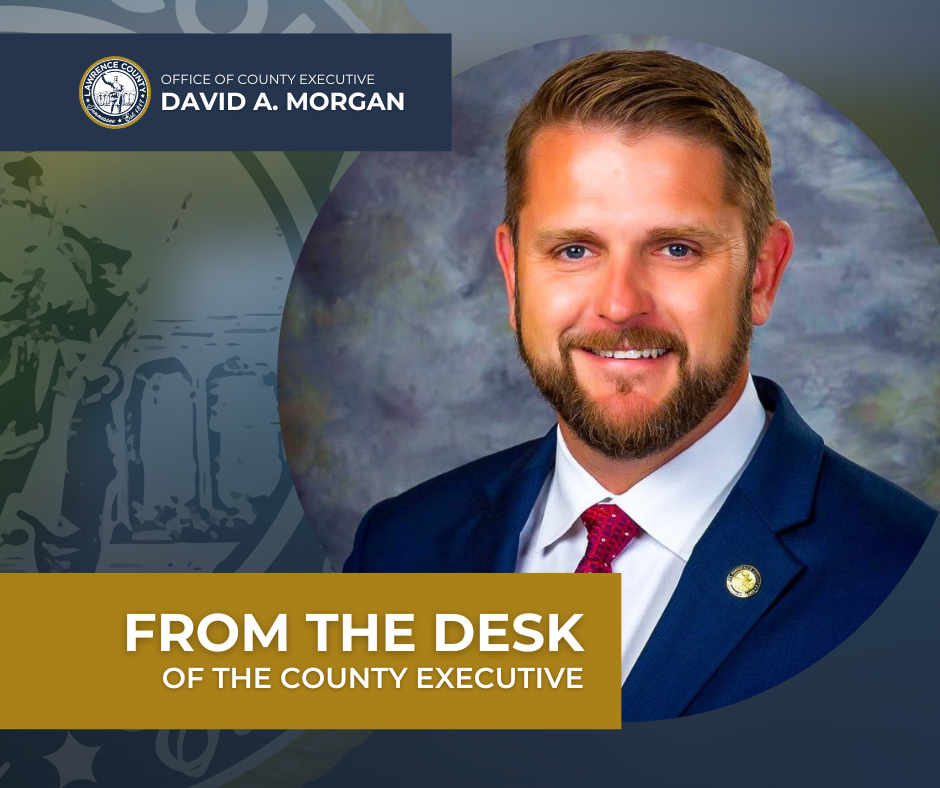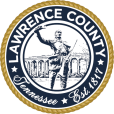by David Morgan, Lawrence County Executive
I’ve had the opportunity to speak with many of you over the past three weeks, following the County Commission’s discussion of a potential wheel tax referendum.
A resolution put before the Commission July 23 proposed a referendum on an additional $50 wheel tax, designated for road-building materials only. Commissioners sent the proposal back to committee to fine-tune it with reduced charges for low-income taxpayers and a maximum charge for those with multiple vehicles.

The referendum requires approval by the Commission at its Special Session on August 20 in order to meet the deadline for the November 5 election. But after hearing your concerns, my recommendation to the Commission is that we not put this to a vote.
Many people are worried about the present economy and the impact our next President and Congress will have on it. Given the chaos of the campaign season, we have a right to be worried. That’s only one concern I have heard.
There is no doubt we need a new, ongoing source of revenue for roads. The price of road-building components increased as much as 125% over the past five years. The cost to pave one mile of tar-and-gravel roadway was $22,000 in 2019 and is $40,000 today. Paving a mile with asphalt went from $78,000 to $140,000. We can’t keep up with our needs, which means Road Superintendent Ryan Krick is forced to make very hard decisions about where to spend his department’s limited funds.
For the next several years, however, the department will have additional funds to work with. That’s because Commissioners voted in June to borrow $20,805,000 in General Obligation Bonds. $6 million will go to our Highway Department for road improvements, the rest will go to schools and other capital projects. $6 million is the maximum amount we can borrow for roads, given their short life cycle, but it’s enough to help Krick and his department catch up over the next couple of years.
In my opinion a wheel tax would be an unnecessary burden on the citizens of Lawrence County at this time. In a few years from now the borrowed money will be gone and other funding mechanisms will have to be considered. I hope you will notice the difference additional funds make over the next several years, as Lawrence County roads continue to improve.
Today, however, I hope to begin clearing up some of the common misconceptions about the wheel tax and our roads.
1. The existing $25 wheel tax was not established to be temporary. From the beginning, the intent was to pay for the 1984 school building program, then pay other school debt, which continues to accumulate.
2. No one (not just the Amish) pays wheel tax on non-motorized vehicles. State law specifies that trailers, like those pulled behind pickup trucks to haul lawnmowers, furniture, etc., are not subject to wheel tax.
3. The “Amish Lane” on Highway 43 was not a county project. The state decided to build the two-way buggy lane and completely funded it.
4. The county road department takes care of 1000+ miles of county roads. City streets are often used as examples when people criticize the condition of our roads. Every incorporated city is responsible for its streets; state highways are the responsibility of the state.
When I ran for office 2 years ago, I made a commitment to government transparency. I’ve made it a point to keep the public informed every step of the way. It is my privilege as County Executive to call a Special Session of the County Commission, as I did in June to pass the budget and have done for August 20. It is also my privilege to add to the agenda any resolutions that I’d like the commission to consider. I have chosen not to put the wheel tax on the agenda, however, 10 commissioners can add to the agenda by written request but it appears that now is not the time. Again, I respect the commissioners who were willing to have tough conversations about revenue needed for county road improvement. It’s always a plus to be looking ahead before shortfalls arise.


